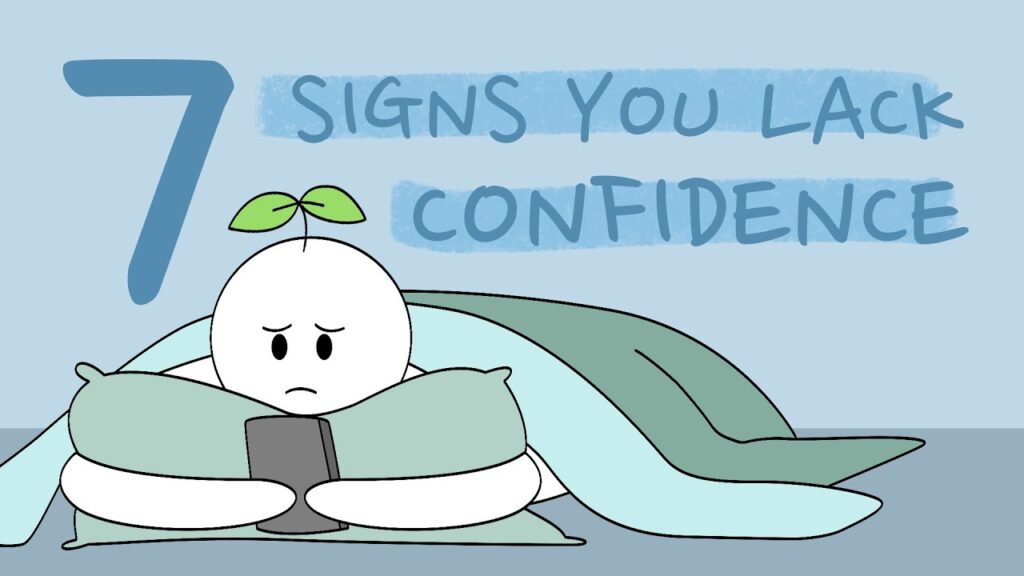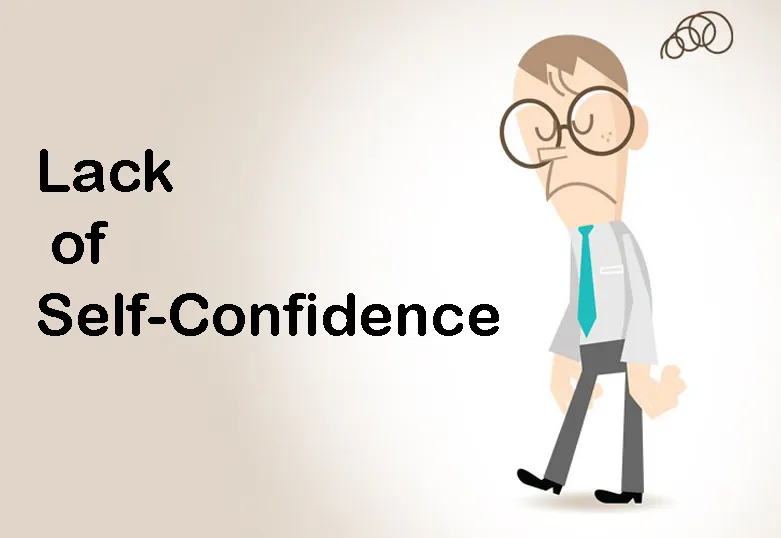Lack of confidence is a felling confident in yourself and your abilities is crucial for success in any area of life. However, there may be times when you feel like you lack the necessary confidence and skills to achieve your goals. This can be a frustrating and disheartening experience, but it doesn’t have to be permanent. There are steps you can take to boost your confidence and develop the skills you need to succeed. In this article, we will explore six effective strategies for overcoming self-doubt and building your confidence and skills.
Table of Contents
Toggle1. Identify the Root Cause of Your Lack of Confidence and Skills

The first step in addressing any issue is understanding its root cause. In this case, it’s important to identify why you feel like you lack confidence and the necessary skills. Is it because of past failures or criticism from others? Are you comparing yourself to others and feeling inadequate? Or do you simply lack experience in a certain area?
Once you have identified the root cause, you can begin to address it. For example, if past failures are holding you back, remind yourself that everyone makes mistakes and that failure is a normal part of the learning process. If you are comparing yourself to others, recognize that everyone has different strengths and weaknesses, and focus on your own progress and improvement. By understanding the root cause of your lack of confidence and skills, you can start to shift your mindset and take action.
Lack of confidence Overcoming Past Failures
Failure is a natural part of life, and it’s how we learn and grow. However, it can be challenging to move on from past failures, especially if they are still affecting your confidence and skills today. Here are some tips to help you overcome past failures:
- Reframe your perspective: Instead of seeing failure as a negative experience, try to view it as a learning opportunity. Ask yourself what you can learn from the situation and how you can use that knowledge to improve in the future.
- Practice self-compassion: It’s easy to be hard on ourselves when we fail, but it’s important to show ourselves compassion and understanding. Treat yourself with kindness and remind yourself that everyone makes mistakes.
- Set realistic goals: Sometimes, our lack of confidence and skills can stem from setting unrealistic expectations for ourselves. Set achievable goals and celebrate small wins along the way. This will help boost your confidence and motivate you to keep going.
Dealing with Criticism
Criticism from others can also be a major blow to our confidence and skill development. However, it’s important to remember that not all criticism is constructive or accurate. Here are some ways to handle criticism:
- Consider the source: When receiving criticism, consider the source. Is it coming from someone you trust and respect, or from someone who may have their own agenda? Take feedback from trusted sources seriously, but don’t let criticism from others bring you down.
- Seek out constructive feedback: Constructive criticism is meant to help you improve, not tear you down. Seek out feedback from people who have your best interests at heart and who can offer helpful suggestions for improvement.
- Use criticism as motivation: Instead of letting criticism discourage you, use it as motivation to prove the critics wrong. Let their words fuel your determination to succeed and prove that you are capable of more than they give you credit for.
10 Reasons You Need to Take a Masterclass Read More
2. Build a Strong Support System

Having a strong support system is essential for building confidence and skills. Surrounding yourself with positive, encouraging, and supportive people can make a huge difference in your mindset and motivation. Here are some ways to build a strong support system:
Family and Friends
Your family and friends are often the people who know you best and can offer valuable support and advice. Spend time with them and open up to them about your struggles. They can provide a listening ear, offer words of encouragement, and help you see your strengths and potential.
Mentors
Mentors are individuals who have achieved success in areas that you aspire to excel in. Having a mentor can provide invaluable guidance and support as you work on building your confidence and skills. Seek out mentors in your field of interest and ask for their advice and insights. They may also be able to connect you with valuable resources and opportunities.
Join a Community or Group
Being part of a community or group can provide a sense of belonging and support. Consider joining a club, organization, or online group related to your interests or goals. These communities can offer a safe space to share your struggles, seek advice, and learn from others who are on a similar journey.
3. Develop a Growth Mindset

A growth mindset is the belief that our abilities and intelligence can be developed through effort and hard work. This mindset is essential for building confidence and skills because it allows us to view challenges as opportunities for growth, rather than setbacks. Here are some tips for developing a growth mindset:
- Embrace challenges: Instead of avoiding challenges, embrace them. See them as an opportunity to learn and improve.
- Learn from mistakes: Don’t let mistakes discourage you. Instead, view them as learning experiences and use that knowledge to do better next time.
- Focus on progress, not perfection: Perfectionism can hinder our growth and hold us back from taking risks. Instead of aiming for perfection, focus on making progress and improving each day.
4. Invest in Personal Development

Personal development is crucial for building confidence and skills. It involves actively seeking out opportunities to learn, grow, and improve yourself. Here are some ways to invest in personal development:
Attend Workshops or Seminars
Attending workshops or seminars related to your interests or goals can provide valuable knowledge and skills. Look for events in your area or online and make an effort to attend and participate.
Take Online Courses
In today’s digital age, there are countless online courses available on a variety of topics. Many of these courses are free or low-cost, making them accessible to anyone. Find courses that align with your goals and interests and commit to completing them.
Read Books and Articles
Reading is an excellent way to learn and expand your knowledge and skills. Make a habit of reading books and articles related to your field of interest or personal growth. You can also join book clubs or online groups focused on personal development to discuss and learn from others.
5. Set Goals and Track Your Progress

Setting goals is essential for building confidence and developing skills. It gives us something to work towards and provides a sense of accomplishment when we achieve them. Here are some tips for setting and tracking your goals:
- Be specific: Instead of setting vague goals, be specific about what you want to achieve. This will help you create actionable steps to reach your goal and measure your progress.
- Write them down: Writing down your goals makes them more tangible and helps you stay accountable. Write them in a journal, use a goal-tracking app, or create a vision board to visually represent your goals.
- Break them down: Big goals can be overwhelming, so break them down into smaller, achievable steps. This will make it easier to track your progress and stay motivated.
6. Practice Self-Care
Finally, practicing self-care is crucial for building confidence and developing skills. Taking care of yourself physically, mentally, and emotionally allows you to show up as your best self and tackle challenges with a clear mind. Here are some ways to practice self-care:
Get Enough Sleep
Adequate sleep is essential for our overall health and well-being. Lack of sleep can lead to fatigue, lack of focus, and decreased productivity. Make sure to prioritize getting enough rest each night.
Eat a Balanced Diet
Eating a balanced diet filled with nutritious foods is important for our physical and mental health. Fueling our bodies with the right nutrients can help us feel energized and focused, which in turn can boost our confidence and skills.
Take Breaks
It’s easy to get caught up in our goals and forget to take breaks. However, taking breaks is essential for avoiding burnout and maintaining our motivation. Schedule breaks throughout your day to recharge and come back to your tasks with a fresh perspective.
Conclusion
Feeling like you lack confidence and the necessary skills can be a discouraging experience. However, it doesn’t have to hold you back from achieving your goals. By identifying the root cause of your feelings, building a strong support system, developing a growth mindset, investing in personal development, setting goals and tracking progress, and practicing self-care, you can overcome self-doubt and build the confidence and skills you need to succeed. Remember to be patient and kind to yourself, and with persistence and effort, you will reach your goals and realize your full potential.








